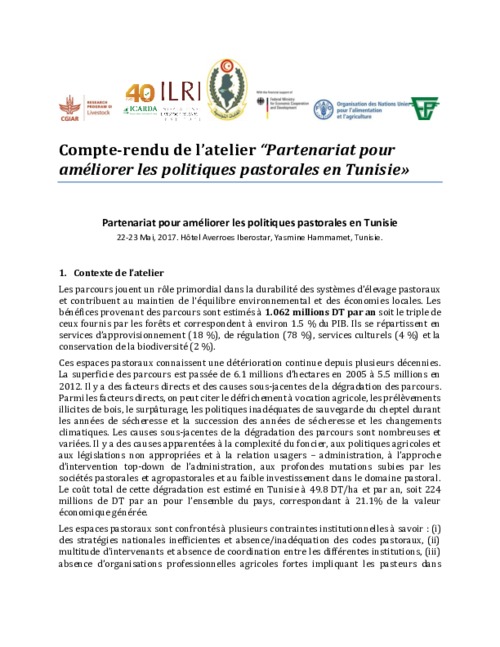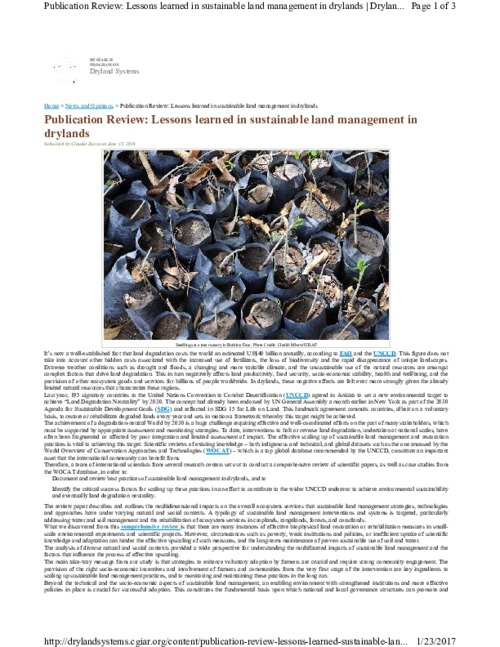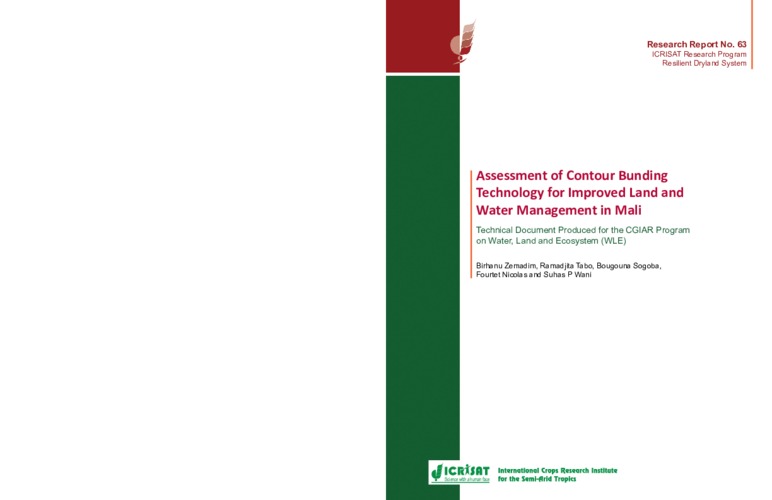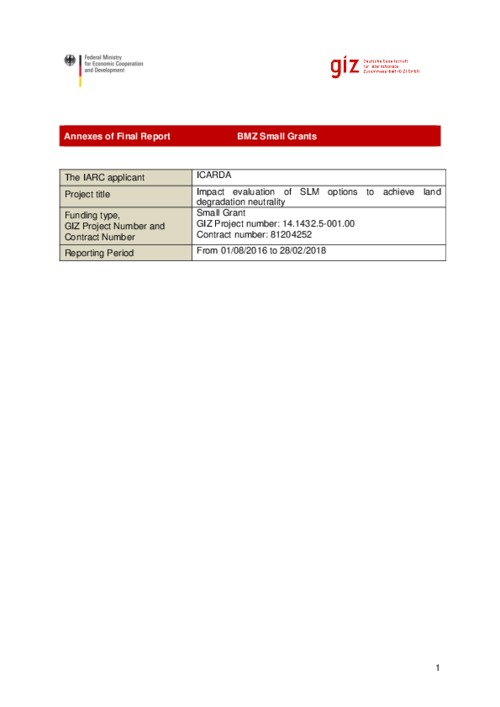First National Workshop for a new/updated Pastoral Code in Tunisia
National discussion and negotiation workshop report with:
Overview of the current situation of the rangelands in the country and related laws within the current forestry regulations (forest code and implementing texts),
Review of ongoing actions, visions and perspectives of national and international partners,
Testimony of selected rangeland users (GDA, Management Councils),











